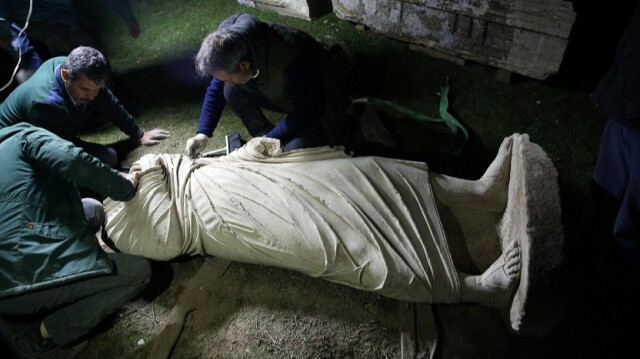
Research ongoing on statues found in Usak province, with one over 6 feet high, says dig site chief
Archeologists in western Turkey have discovered two statues dating back 2,000 years in excavations of the ancient Roman city of Blaundus.
Blaundus, also known as Blaundos, was first built by Macedonians that came to Anatolia, present-day Turkey, following the military campaign of Alexander the Great. The ruins of the ancient city, located in what is now the Ulubey district of Usak province, was later occupied by the Romans.
Dig work to unearth the city, which started in 2018, are currently focused on the area where a temple to the Greek mythological goddess Demeter is located.
Speaking to Anadolu Agency, Birol Can, a faculty member at the Archeology Department of Usak University, said the team had discovered two statues in the courtyard of the temple located in the center of the city.
Can, who is leading the excavations, said one of the discovered statues was 185 centimeters (over 6 feet) tall with no head, while the other was missing its head, right arm, and both legs.
"We don't know yet whether the statues are from the temple site or from street-side honorifics," he said, adding that further research on the finds was ongoing.
"Both finds are male marble statues. We have not yet determined who they are -- whether they are gods, emperors, or statesmen," Can said.
Noting that the statues may have been inspired and created in the Roman-era style, he said: "We can say that the art of sculpture has been at its peak since the second half of the 4th century BC."
Hello, the comments you share on our site are a valuable resource for other users. Please respect other users and different opinions. Do not use rude, offensive, derogatory, or discriminatory language.
The floor is all yours.








